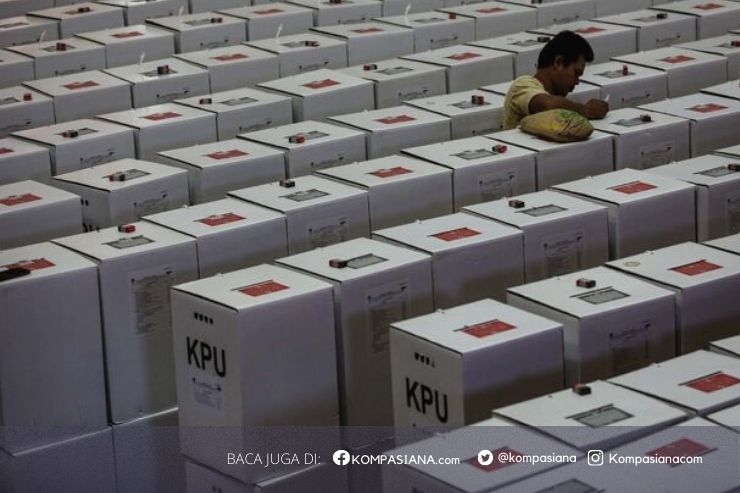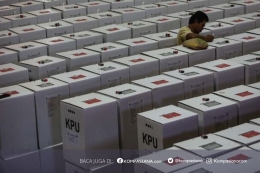The Controversy Surrounding Apple's Tactics with the Indonesian Government?
The relationship between Apple and the Indonesian government has been a topic of much scrutiny and debate. Apple's marketing strategies and business practices have been called into question, leading to concerns about the potential impact on Indonesia's interests. (Tian et al., 2022) On the one hand, Indonesia is a significant market for Apple, with the company's products enjoying widespread popularity among Indonesian consumers. However, the Indonesian government has also taken steps to protect its domestic industries, particularly the lucrative palm oil industry, which has led to trade disputes with the EU. (Zaki & Syahputra, 2021)
In this context, it is important to examine the potential benefits and drawbacks of Apple's operations in Indonesia.
From Indonesia's perspective, the presence of Apple in the country can bring significant economic benefits. As one of the largest economies in Southeast Asia, Indonesia represents a vast and growing consumer market that is highly attractive to multinational corporations like Apple. (Dick & Mulholland, 2016) The influx of investment and the creation of jobs in the technology sector could contribute to Indonesia's economic growth and development. However, the government must also balance these potential gains against the need to protect its domestic industries, particularly the palm oil sector, which is a major contributor to Indonesia's economy and foreign exchange earnings. (Zaki & Syahputra, 2021)
On the other hand, Apple's business practices have been the subject of criticism, with allegations of tax avoidance and anticompetitive tactics that may harm the interests of the Indonesian government and its citizens. The company's aggressive pursuit of market share and profitability could come at the expense of Indonesia's own economic and regulatory priorities, leading to tensions and disputes between the two parties.
Ultimately, the relationship between Apple and the Indonesian government is a complex and multifaceted issue that requires careful analysis and a consideration of the various stakeholders involved. While the potential benefits of Apple's presence in Indonesia are significant, the government must also ensure that its own interests and priorities are protected, particularly in strategically important industries like palm oil.
One key factor to consider is the impact of global economic trends on Indonesia's trade and economic performance. The COVID-19 pandemic and the ongoing trade war between the US and China have had significant implications for Indonesia's economic growth, including its palm oil exports. (Mawardati et al., 2021) In this context, the government may need to adopt a more proactive and strategic approach to managing its relationships with multinational corporations like Apple, in order to maximize the benefits and minimize the potential risks.
To further explore the dynamics between Apple and the Indonesian government, it is important to examine the specific strategies and tactics employed by Apple in the country. The company's marketing and innovation efforts, as well as its approach to navigating the regulatory environment, will be crucial in determining the long-term outcome of this relationship. (Tian et al., 2022)(Putra et al., 2020)
In conclusion, the controversy surrounding Apple's tactics with the Indonesian government is a complex and multifaceted issue that requires a nuanced analysis of the potential costs and benefits for both parties. While the presence of Apple in Indonesia can bring significant economic benefits, the government must also carefully balance these potential gains against the need to safeguard the interests of its citizens and domestic industries, particularly in strategically important sectors.
To address the specific prompt, it appears that Apple's tactics towards the Indonesian government have been somewhat "cunning" or "crafty" in nature, as the company seeks to maximize its market share and profitability in the country. However, the ultimate impact on Indonesia's interests is not entirely clear, and will depend on the government's ability to effectively manage its relationship with Apple and other multinational corporations operating within its borders.
Apple wants a 50-year tax holiday?
The Indonesian government has implemented various policies, including export bans, import restrictions, and import liberalization, as a means of addressing the challenges posed by the COVID-19 pandemic and maintaining the country's economic growth, with the ultimate goal of enhancing the prosperity of its people. (Asmara et al., 2022)
The complexities of this issue highlight the need for ongoing dialogue and negotiation between Apple and the Indonesian government, with a view to finding a mutually beneficial solution that serves the interests of both parties.
One potential area of concern is the issue of tax planning and earnings management by multinational corporations like Apple. The differences between accounting and taxation financial statements can create opportunities for companies to engage in tax avoidance strategies, which may have negative implications for the tax revenue and public finances of the host country. The Indonesian government will need to carefully monitor and regulate the tax practices of companies operating within its borders, to ensure that the country's economic interests are adequately protected.
Indonesia firmly rejects Apple's investment, which is too small compared to Vietnam. Instead, the government is pursuing partnerships with technology companies that can make more substantial commitments and contribute more significantly to the country's economic development.
In the end, the relationship between Apple and the Indonesian government is a complex balancing act, where both parties must navigate the competing interests of economic growth, domestic industry protection, and regulatory oversight.
As the government of Indonesia, we must carefully weigh the potential benefits and risks of allowing Apple to operate in our country.
Apple is considered to only profit from the Indonesian market, it does not want to invest more in Indonesia. In addition, the TKDN requirement cannot be met by Apple, which means that Apple does not provide domestic benefits for Indonesia.
Rather than acquiescing to Apple's demands, the Indonesian government should firmly reject the company's investment proposal and instead focus its efforts on forging partnerships with technology firms that are willing to make more substantial and meaningful contributions to the country's economic development and prosperity.
The Indonesian government should take a firm stance against Apple's attempts to exploit the local market without making sufficient investments or concessions.
References
Asmara, T., Arimuladi, S. U., & Utama, Y. J. (2022). Investment dynamics in the emerging market: COVID-19 influence. In T. Asmara, S. U. Arimuladi, & Y. J. Utama, Journal of Governance and Regulation (Vol. 11, Issue 4, p. 90). Publishing house "Virtus Interpress." https://doi.org/10.22495/jgrv11i4art9
Dick, H., & Mulholland, J. (2016). The Politics of Corruption in Indonesia. In H. Dick & J. Mulholland, Georgetown journal of international affairs (Vol. 17, Issue 1, p. 43). Georgetown University Press. https://doi.org/10.1353/gia.2016.0012
Mawardati, Jamilah, J., & Syamni, G. (2021). The impact of the economic crisis on Indonesian palm oil exports: a long term simulation analysis. In Mawardati, J. Jamilah, & G. Syamni, IOP Conference Series Earth and Environmental Science (Vol. 694, Issue 1, p. 12012). IOP Publishing. https://doi.org/10.1088/1755-1315/694/1/012012
Putra, Febrianur Ibnu Fitroh Sukono, Budiantoro, R. A., Luxfiati, B. A., & Widawati, M. W. (2020). CONSUMER SATISFACTION BEHAVIOR WHOM PURCHASE CHINESE SMARTPHONE IN SOLORAYA. In Febrianur Ibnu Fitroh Sukono Putra, R. A. Budiantoro, B. A. Luxfiati, & M. W. Widawati, Jurnal
Aplikasi Manajemen (Vol. 18, Issue 3, p. 588). Brawijaya University. https://doi.org/10.21776/ub.jam.2020.018.03.19
Tian, W., Wang, M., & Wang, Q. (2022). The Core Competentness of Apple Inc. In W. Tian, M. Wang, & Q. Wang, Advances in economics, business and management research/Advances in Economics, Business and Management Research. Atlantis Press. https://doi.org/10.2991/aebmr.k.220307.116
Zaki, M. R. S., & Syahputra, R. (2021). Retalism mechanism in Indonesian and European Union trade disputes regarding CPO commodity exports. In M. R. S. Zaki & R. Syahputra, IOP Conference Series Earth and Environmental Science (Vol. 729, Issue 1, p. 12134). IOP Publishing. https://doi.org/10.1088/1755-1315/729/1/012134
Baca konten-konten menarik Kompasiana langsung dari smartphone kamu. Follow channel WhatsApp Kompasiana sekarang di sini: https://whatsapp.com/channel/0029VaYjYaL4Spk7WflFYJ2H








